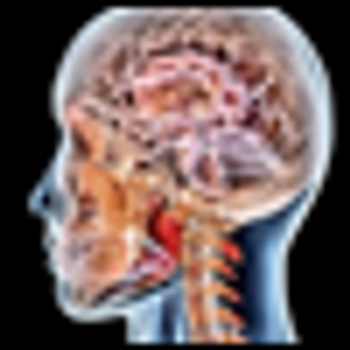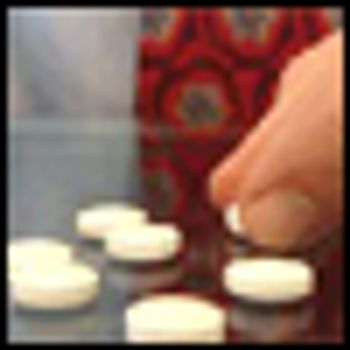
Are antidepressants active placebos or lifesavers? Are they overprescribed? Are clinical trials of these drugs insufficient?

Are antidepressants active placebos or lifesavers? Are they overprescribed? Are clinical trials of these drugs insufficient?

The first week in October. Leaves fall. Kids start school. Temperatures descend. Weather fluctuates. Stigma decreases. Awareness rises-with the help of the 21st anniversary of NAMI's Mental Illness Awareness Week.

I recently experienced the odd coincidence of receiving 2 separate emails on the same morning each asking almost the very same question. . . how can I remain so high on psychiatry while at the same time being so critical of some of its recent trends and so fearful of the likely future harmful impact of DSM-5?

Cognitive-behavioral therapy, interpersonal psychotherapy, or antidepressants can be effective treatments for major depression-despite their minimal separation from placebo/control therapies in clinical trials. This article argues that their specific efficacy has not been established.

In my view, Dr Angell’s assertions reflect both a serious misunderstanding of psychiatric diagnosis, and-equally important-a failure to address the core philosophical issues involved in her use of the terms “subjective,” “objective,” “behaviors,” and “signs.”

Anxiety disorders are a frequent occurrence in pregnancy. While some worries and anxiety are experienced by more than 50% of pregnant women, a full-blown anxiety disorder involves risk to both mother and fetus and increases the risk of postpartum depression.

Anxiety disorders occur in 18% to 28% of the US general population during any 12-month period. In anxiety disorder, there is a 33% to 45% 12-month prevalence rate for a comorbid substance use disorder (SUD).

In this article, we attempt to leverage state-of-the-art research findings to provide empirically informed perspectives and practices related to these issues.

Exposure-based therapies are highly effective for patients with anxiety disorders, to the extent that exposure should be considered a first-line, evidence-based treatment for such patients. In clinical practice, however, these treatments are underutilized, which highlights the need for additional dissemination and training.

What role do you play in managing stalking behaviors? How can you read between the lines and determine which stalker type behavior a patient's communication suggests?

It is our responsibility as psychiatrists to educate the media and the public in general.

A therapist forgets about a patient’s appointment. She becomes abnormally angry, unusually forgiving, atypically bored, or excessively voyeuristic. What is going on? The therapist’s countertransference is making itself known.

Dear Mrs. -- You have asked me about the cause of your mood disorder, and whether it is due to a "chemical imbalance."

We are living in an evidence-based era in all fields of medicine, including psychiatry. For the most part, this represents progress because clinicians can start to base their interventions on treatments that have been supported by the results of research studies.

Psychotherapy outcomes and the mechanisms of change that are related to its effects have traditionally been investigated on the psychological and social levels, by measuring changes in symptoms, psychological abilities, personality, or social functioning.

I was ready. In my mind I rehearsed agreeable sermons about diet, exercise, and MMR vaccines I’d use to shepherd my courteous new patients to wellness. It’s like I wanted to replace my memories of psychiatric patients with the most wholesome medical facts.

Many will recall “The Decade of the Brain,” when President George H.W. Bush declared that the 1990s would be dedicated to research on neuroscience. If there were landmark findings from that decade, I’m not sure what they were.

The recent death of Amy Winehouse has brought the question of why some people get addicted to alcohol and/or drugs and others don’t.

Those of you who have been following the SVP controversy know that "Paraphilia NOS, nonconsent" (PNOS) is a fake diagnosis that is losing traction as justification for committing rapists to psychiatric hospitals.

Members of the military returning from combat operations have high rates of substance abuse. They also often exhibit a co-occurring triad of posttraumatic stress disorder (PTSD), traumatic brain injury (TBI), and pain, which complicates the problems with substance abuse.

This article addresses the epidemiology, diagnosis, and treatment of mild TBI among combat veterans, with a particular focus on blast injury and the presence of comorbid posttraumatic stress disorder (PTSD).

Most military families successfully adapt to a service member's deployments for military duties. Nevertheless, almost a decade of wartime stress associated with the current wars in Iraq and Afghanistan has presented unprecedented challenges for military families.

Which tool is helpful in screening for sexual addiction? Is the symptom severity in women treated for substance abuse generally equivalent to that of males? Structural abnormalities in which brain areas have been associated with substance abuse? These questions and more in this quiz.

During the past year, I have been involved as an expert witness for the defense in 14 SVP cases (tried in California, Washington, and Iowa). My role has been to clarify what is meant by the wording of the Paraphilia section in DSM-IV. And it certainly does badly need explaining.

REMS programs are meant to focus on drugs that are associated with special risks that the FDA does not feel are sufficiently addressed by the standard prescribing information.